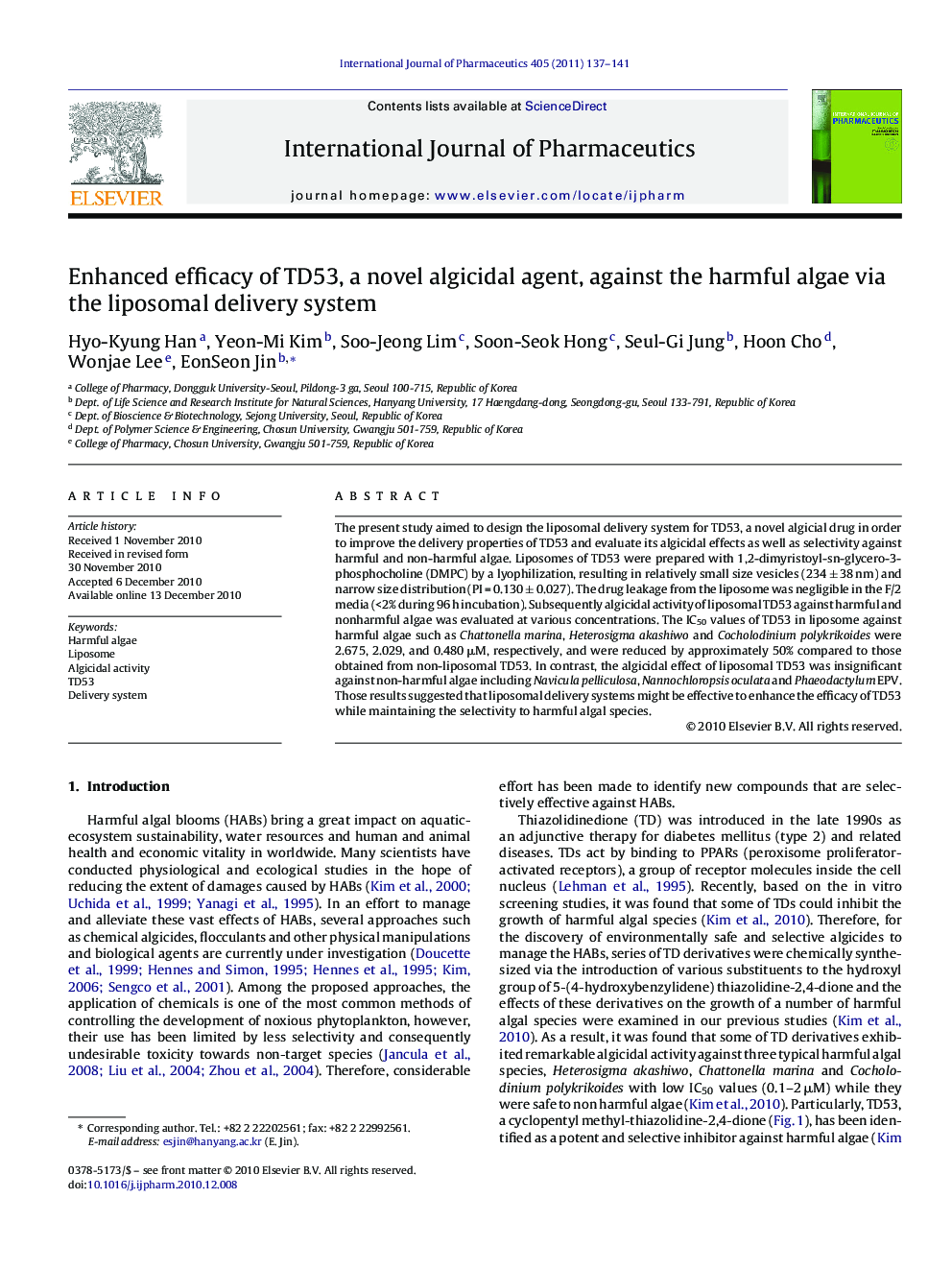| Article ID | Journal | Published Year | Pages | File Type |
|---|---|---|---|---|
| 2503647 | International Journal of Pharmaceutics | 2011 | 5 Pages |
The present study aimed to design the liposomal delivery system for TD53, a novel algicial drug in order to improve the delivery properties of TD53 and evaluate its algicidal effects as well as selectivity against harmful and non-harmful algae. Liposomes of TD53 were prepared with 1,2-dimyristoyl-sn-glycero-3-phosphocholine (DMPC) by a lyophilization, resulting in relatively small size vesicles (234 ± 38 nm) and narrow size distribution (PI = 0.130 ± 0.027). The drug leakage from the liposome was negligible in the F/2 media (<2% during 96 h incubation). Subsequently algicidal activity of liposomal TD53 against harmful and nonharmful algae was evaluated at various concentrations. The IC50 values of TD53 in liposome against harmful algae such as Chattonella marina, Heterosigma akashiwo and Cocholodinium polykrikoides were 2.675, 2.029, and 0.480 μM, respectively, and were reduced by approximately 50% compared to those obtained from non-liposomal TD53. In contrast, the algicidal effect of liposomal TD53 was insignificant against non-harmful algae including Navicula pelliculosa, Nannochloropsis oculata and Phaeodactylum EPV. Those results suggested that liposomal delivery systems might be effective to enhance the efficacy of TD53 while maintaining the selectivity to harmful algal species.
Graphical abstractThe liposomal delivery system for TD53, a novel algicial drug appeared to be effective to enhance the efficacy of TD53 without any significant loss of selectivity to harmful algae.Figure optionsDownload full-size imageDownload as PowerPoint slide
